One of the most consequential Supreme Court decisions on homelessness in decades is beginning to play out in California, where Gov. Gavin Newsom has ordered state agencies to begin the process of removing homeless encampments.
Newsom’s executive order has been the most far-reaching response the nation has seen to the court’s June 28 decision in Grants Pass v. Johnson, in which the court determined that ordinances in Grants Pass, Oregon, prohibiting sleeping on public property do not constitute “cruel and unusual punishment” in violation of the Eighth Amendment. The ruling found that the laws, which assess fines that can increase with repeat offenses and ultimately result in jail time, did not criminalize homelessness.
“The public-camping laws prohibit actions undertaken by any person, regardless of status,” Justice Neil Gorsuch wrote in the 6-3 opinion. “It makes no difference whether the charged defendant is currently a person experiencing homelessness, a backpacker on vacation, or a student who abandons his dorm room to camp out in protest on the lawn of a municipal building.”
The decision overturned a 2022 Ninth Circuit ruling that many West Coast leaders, including Newsom, believed constrained their ability to maintain clean streets in their communities. Particularly in California, but also in other western states, balancing the public safety aspects of homelessness with compassion and respect for the rights of homeless individuals has proven intractable. A 2023 census determined that roughly 180,000 people in California were homeless, living either in shelters or on the streets, representing about 30 percent of all homeless individuals in the U.S.
A tool for cities.
Devon Kurtz, public safety policy director at the Cicero Institute, said not much will change for homeless people in “the vast majority of the country,” where “most cities already have laws that prohibit camping, and have been enforcing them to some degree.” However, the ruling will have major implications in the nine states under the jurisdiction of the Ninth Circuit, where elected officials have “had their hands tied on how they can enforce their laws around public camping. That's where it will start to transform,” he said.
Until the Grants Pass decision, many West Coast homeless policies were based on a 2018 Ninth Circuit decision in Martin v. Boise, which held that homeless people couldn’t be punished for sleeping in public places if no adequate alternatives are available.
League of California Cities Executive Director and CEO Carolyn Coleman said in a prepared statement that the Supreme Court’s decision put “back on the table a tool that cities can use to address the complex issue of homelessness.” However, the key, Coleman said, is that the ability to punish homeless camping permitted by the decision will need to be accompanied by other strategies, including “ongoing state funding to match the scale of the crisis,” in order to fully address the problem.
Some local governments moved quickly to clear homeless encampments—though not to impose penalties on homeless individuals—after the court issued its ruling in Grants Pass. In Oakland, officials posted notices near a collection of handmade shanties and parked vehicles in the shadow of the Bay Bridge that said the encampment would be cleared in a few days. On July 23, police officers and city workers began sweeping the area on the shores of San Francisco Bay, telling occupants they needed to move and offering accommodations in shelter cabins or safe parking sites. Not all the people camping there chose those options; some just left, likely for a different location.
What Newsom’s order means.
Two days later, Newsom’s executive order provided a clearer course of action, calling on state agencies and local governments to act with “urgency and dignity” as they begin to eliminate homeless encampments across the state. In removing encampments, officials must offer homeless people support and assistance from local service providers, at least two days advance notice that the areas will be cleared, and must store their belongings for at least 60 days.
In addition, the order presses local governments to take action to remove homeless encampments from public spaces such as parks and sidewalks, particularly in situations where camps pose a health or safety hazard. In announcing his order, Newson encouraged local governments to apply for $3.3 billion in grant funding from Proposition 1, narrowly passed by voters earlier this year to provide more funding for mental and behavioral health treatment in hopes of getting homeless people off the streets and into stable housing.
While California officials reacted rapidly to the Supreme Court’s ruling, the legislature in the state where the case originated is eyeing potential changes to its laws. The Grants Pass ruling could affect a 2021 Oregon statute requiring that local regulations on where people can sleep be “objectively reasonable.” At least two Democratic state legislators in Oregon have indicated that they would like to repeal the law, which critics have called too vague. “Communities should have clarity, and we may need to rewrite the law,” state Rep. Paul Evans said. “Or because of this decision, the law may in effect be moot.”
Influences on policy elsewhere.
While states outside of the Ninth Circuit’s jurisdiction will not be directly affected by the Supreme Court’s ruling, the decision is still likely to influence and promote new homelessness policies. This can already be seen in Colorado, where, on July 8, Denver Mayor Mike Johnston proposed a sales tax increase expected to generate $100 million annually to be directed to affordable housing projects. Donald Burnes, founder of the Center for Housing and Homelessness Research at the University of Denver, said he suspects that this move was, in part, motivated by the ruling in an effort to reduce the number of homeless individuals sleeping outside who could be vulnerable to prosecution under the new decision.
Though Denver possesses the largest homeless population in Colorado, Burnes believes that having a mayor who is sympathetic to the homeless will spare homeless individuals in Denver from criminalized homeless camping. However, Burnes said, in the areas surrounding Denver, existing efforts to get rid of homeless encampments are likely to be spurred on by the decision. “We are going to see lots more people cited, ticketed, and jailed,” he said.
In Chicago, another large city with a major homeless problem, the Supreme Court decision is not likely to influence homeless policy very much at all. Chicago Mayor Brandon Johnson has stated that the city will not criminalize homeless camping following the new ruling, according to 38th Ward Alderman Nicholas Sposato. Sposato told The Dispatch this means that local elected officials in Chicago will not be able to ban public camping for homeless individuals, even in their individual wards.
The Chicago municipal code states that, “No person shall use any public way for the storage of personal property, goods, wares or merchandise of any kind.” While this law doesn’t explicitly forbid the use of tents, city officials have interpreted it to mean that city sidewalks should not be blocked by tents or temporary shelters. However, Illinois law offers strong protections for the rights of homeless citizens. The 2013 Illinois Bill of Rights for the Homeless Act mandates that Illinois residents not be treated differently because they are homeless. Together, the municipal code and homeless bill of rights mean that tent usage can be regulated and restricted, but it cannot be outright prohibited.
Because of this, Shiloh Capone, executive director of Street Samaritans, believes there is no “political will” to “criminaliz(e)” homeless camping. Capone hopes that the Supreme Court decision will put a “national spotlight” on the issue of homelessness, to encourage “every city to make a decision about how to address homelessness.”
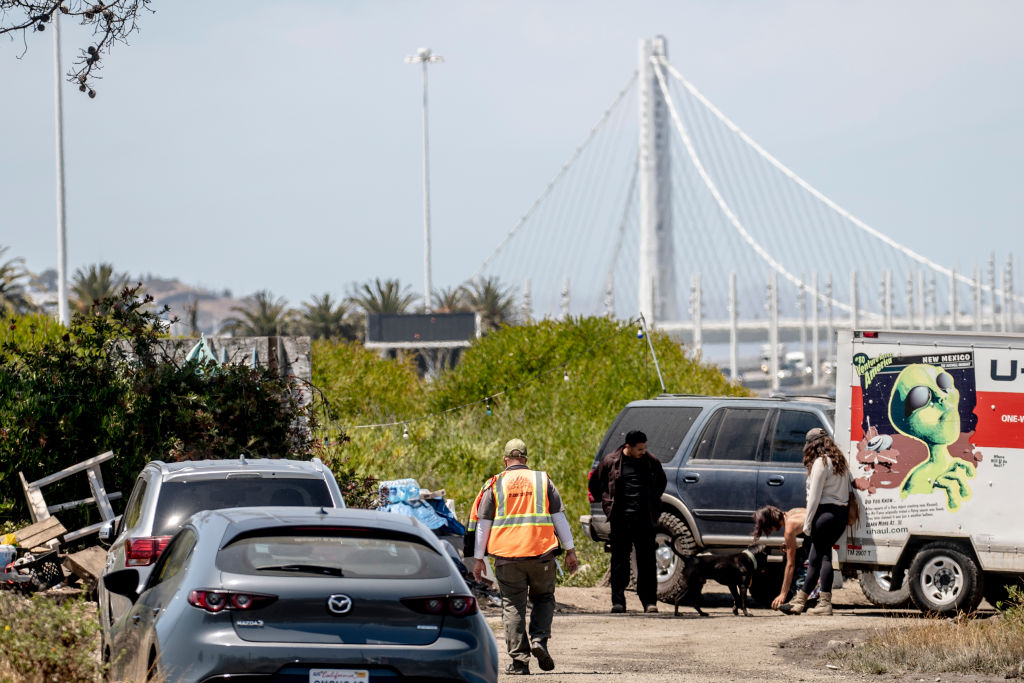
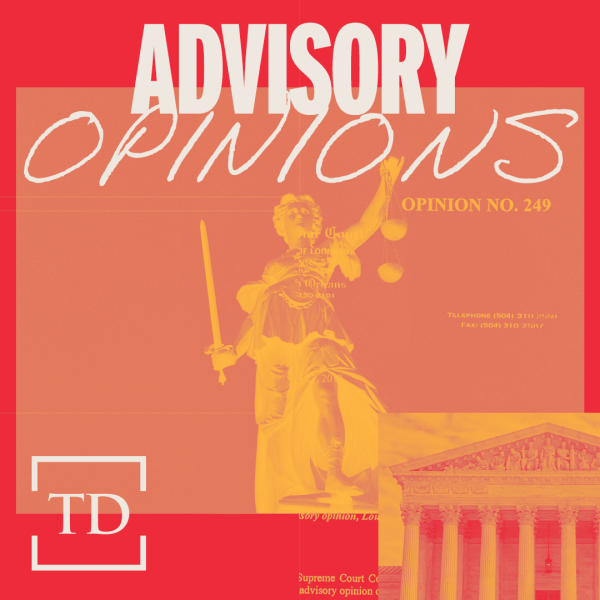
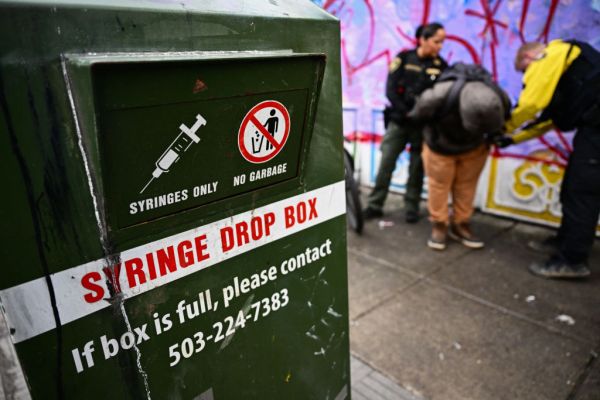
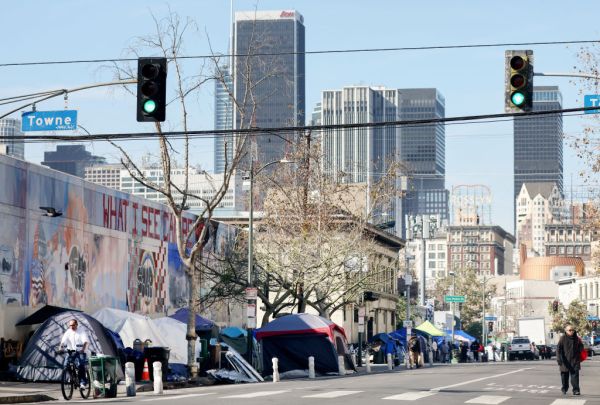

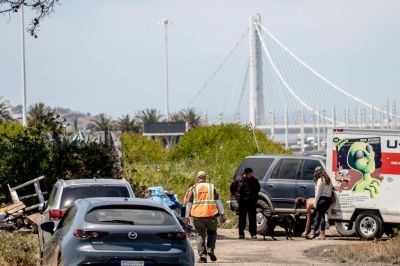
Please note that we at The Dispatch hold ourselves, our work, and our commenters to a higher standard than other places on the internet. We welcome comments that foster genuine debate or discussion—including comments critical of us or our work—but responses that include ad hominem attacks on fellow Dispatch members or are intended to stoke fear and anger may be moderated.
With your membership, you only have the ability to comment on The Morning Dispatch articles. Consider upgrading to join the conversation everywhere.